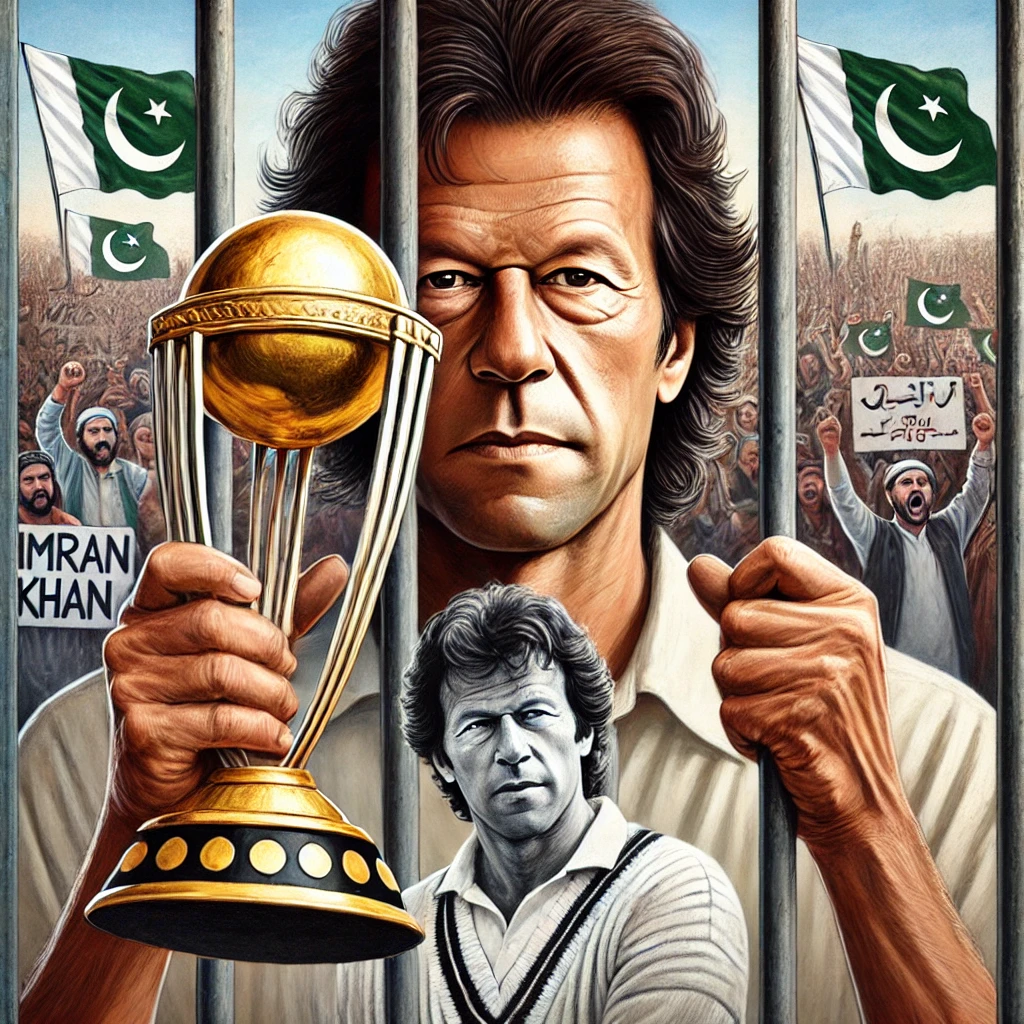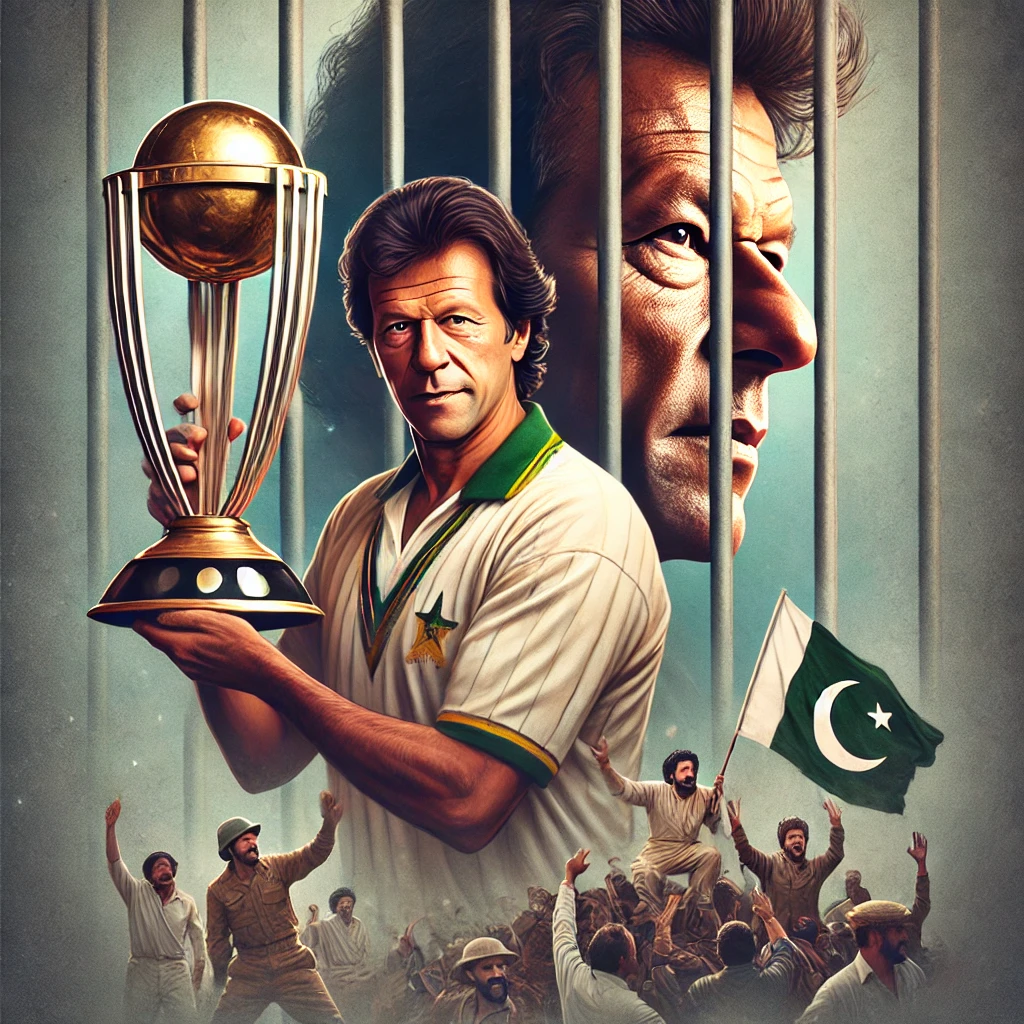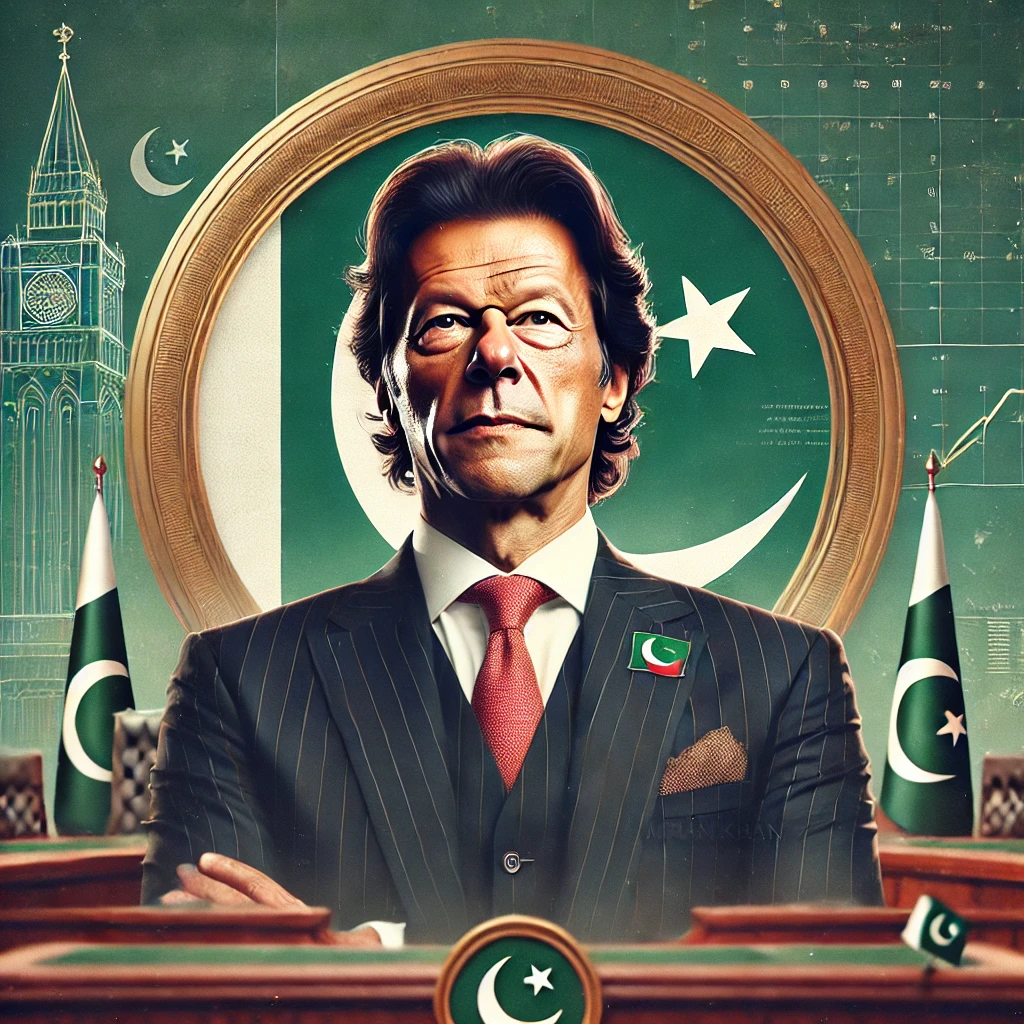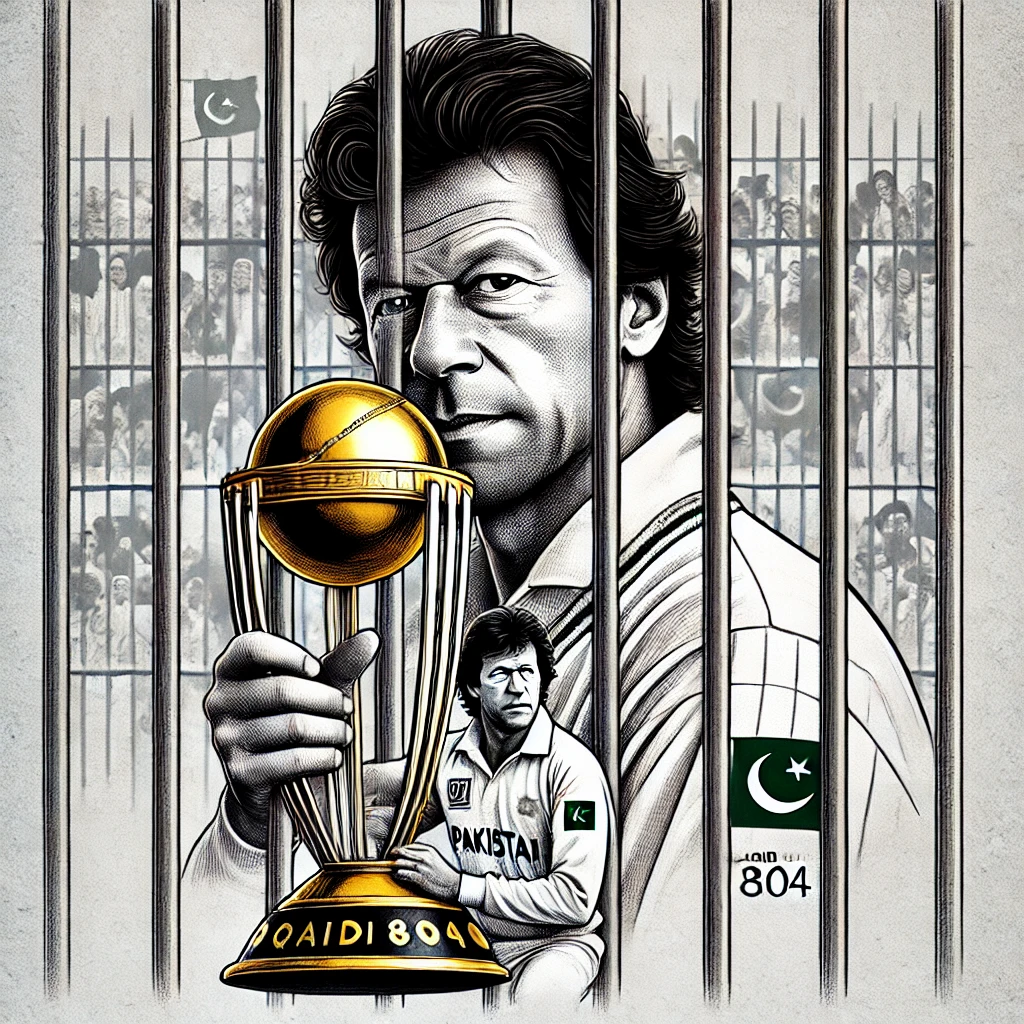
Biography of Imran Khan (Qaidi 804): Pakistan’s Former Prime Minister and Cricketer
Imran Khan, widely known as “Qaidi 804” in recent times due to his arrest and imprisonment, is a renowned cricketer-turned-politician who has played a pivotal role in Pakistan’s contemporary politics. Born on October 5, 1952, in Lahore, Pakistan, Imran Khan rose to global fame as the captain of Pakistan’s cricket team, leading them to their first-ever World Cup victory in 1992. Over the years, his persona transformed from a cricketing hero into one of the most charismatic and controversial political leaders in Pakistan.
Early Life and Cricket Career

Imran Khan was born into a Pashtun family in Lahore. He attended elite educational institutions, including Aitchison College in Lahore, and later, the prestigious Royal Grammar School in England. His time at Oxford University, where he studied Philosophy, Politics, and Economics, significantly shaped his worldview.
In 1971, at the age of 18, Khan made his Test cricket debut for Pakistan. His talent on the field and his leadership qualities were evident early on, culminating in his legendary role as captain. Under his leadership, Pakistan won the 1992 Cricket World Cup, a historic achievement that solidified his place as a national hero. His cricketing career spanned over two decades, during which he became one of the world’s finest all-rounders and Pakistan’s most celebrated sportsman.
Transition to Politics
After retiring from cricket, Imran Khan embarked on a new journey in Pakistan’s political landscape. He founded the political party Pakistan Tehreek-e-Insaf (PTI) in 1996, with the aim of fighting corruption, establishing the rule of law, and uplifting the underprivileged. For many years, his political efforts were dismissed by critics as naive and idealistic. However, his message gradually gained traction among the masses, particularly the youth, due to his advocacy for justice and transparency.
Imran Khan’s political breakthrough came in the 2013 general elections when PTI emerged as the second-largest party in Pakistan. His populist rhetoric and anti-corruption stance continued to resonate, and by 2018, PTI won the general elections, making him the 22nd Prime Minister of Pakistan.
As Prime Minister

Imran Khan’s tenure as Prime Minister from 2018 to 2022 was marked by both achievements and controversies. He focused on building a welfare state, modeled on the principles of the Prophet Muhammad’s Medina. His government initiated programs like the Ehsaas Program, aimed at poverty alleviation, and launched health insurance schemes for the underprivileged. However, his administration also faced challenges, including economic instability, rising inflation, and strained relations with opposition parties and international powers.
Qaidi 804: Imprisonment and Controversy

In 2023, Imran Khan found himself embroiled in legal battles and was arrested in a highly publicized case, being designated as prisoner number 804, or “Qaidi 804.” His arrest sparked nationwide protests, with his supporters believing that the charges were politically motivated by his opponents. His imprisonment and subsequent legal proceedings became a symbol of the growing political unrest in Pakistan, further cementing his status as a divisive but influential figure.
Despite being behind bars, Khan continues to inspire his followers, who see him as a symbol of resistance against corruption and injustice. Many believe that his political career is far from over, and he could make a comeback stronger than before.
Personal Life
Imran Khan has had a colorful personal life, including high-profile marriages and relationships. He was married to Jemima Goldsmith, a British socialite, in 1995, with whom he has two sons, Sulaiman and Qasim. The couple divorced in 2004, and he later married Reham Khan, a TV presenter, in 2015, though their marriage lasted less than a year. In 2018, he married Bushra Bibi, a spiritual leader. Imran Khan is known for his philanthropic efforts, having established the Shaukat Khanum Memorial Cancer Hospital & Research Centre, named after his late mother, and Namal University, aimed at providing quality education in rural Pakistan.
Legacy
Imran Khan’s legacy is multifaceted. As a cricketer, he is remembered as one of the greatest captains and all-rounders in the history of the sport. As a politician, he has been a polarizing figure, loved and loathed in equal measure. His advocacy for justice, fight against corruption, and vision of a welfare state have left an indelible mark on Pakistan’s political landscape.
Whether Imran Khan will regain his political standing after his tenure as Qaidi 804 remains uncertain. However, one thing is clear: his influence on Pakistan’s history and future will be remembered for generations to come.
Read More: www.ptvsportshd.com